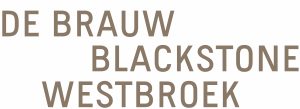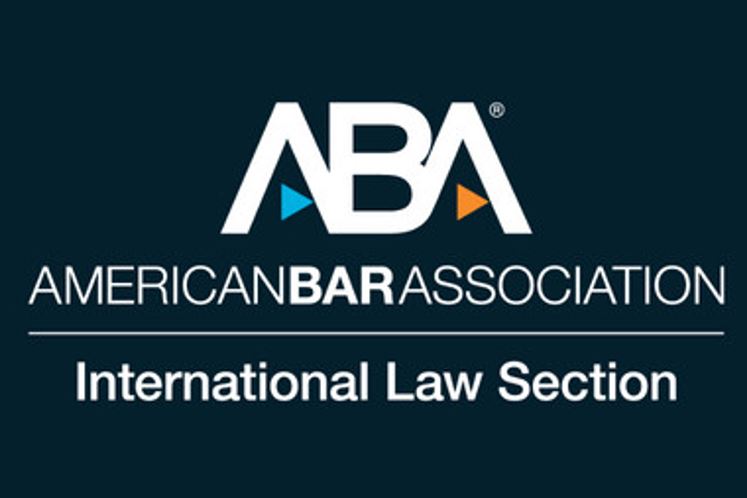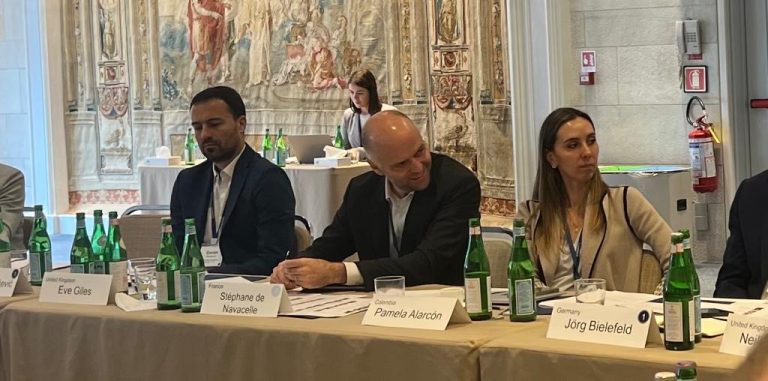I. Can allegations of corruption serve as a bar to jurisdiction of arbitral tribunals or admissibility of claims?
Under Dutch law, the validity of an arbitration agreement is separable from the underlying contract pursuant to article 1053 of the Dutch Code of Civil Procedure (“DCCP”). That means that even if the contract is at risk of being invalidated in the arbitral proceedings due to an argument with its basis in corruption, the arbitration agreement is not automatically affected.
Article 1052 DCCP contains the internationally recognised principle of competence-competence, which allows arbitral tribunals to determine their own jurisdiction. This principle applies also when the dispute involves allegations of corruption.
Based on these principles of separability and competence-competence, allegations of corruption do not necessarily serve as a bar to jurisdiction of arbitral tribunals or the admissibility of claims. Certain claims or counterclaims could however fall outside the scope of the arbitration agreement, if allegations of corruption are explicitly excluded by the arbitration clause. In that event, the tribunal will conclude that there is no valid arbitration agreement that covers (that part of) the dispute and that the tribunal therefore lacks jurisdiction to decide on the corruption allegations. Article 16(2) of the 2019 Netherlands Model BIT, for example, prescribes that: “The Tribunal shall decline jurisdiction if the investment has been made through misinterpretation, concealment, corruption, or similar bad faith conduct amounting to an abuse of process.”
II. Can allegations of corruption affect the validity of an arbitral award?
Under Dutch law, allegations of corruption can affect the validity of an arbitral award. Article 1065(1)(e) DCCP states that an arbitral award can be annulled if the award, or the manner in which it came about, violates public policy. An arbitral award would violate public policy when the content or the enforcement of the award would result in violation of mandatory law of such a fundamental nature that adherence to it may not be made impossible by rules of procedure (Supreme Court 21 March 1997, ECLI:NL:HR:1997:AA4945 (Eco Swiss/Benetton); Supreme Court 12 April 2019, ECLI:NL:HR:2019:565 (Republiek Ecuador/Chevron)). In principle, Dutch setting-aside courts interpret public policy grounds narrowly, reserving intervention for exceptional cases where corruption fundamentally affects the award or its enforcement.
For example, an award violates public policy if it enforces a contract that came into existence under the influence of corruption and which would not have come into existence (or not on the same terms) without it (The Hague Court of Appeal 22 October 2019, ECLI:NL:GHDHA:2019:2677 (Bariven/Wells)). An award would also amount to a violation of public policy when corruption has significantly influenced the arbitral proceedings. On the other hand, in setting-aside proceedings stemming from a treaty-based arbitration, the courts held that there was no impact on the validity of the arbitral award where the claimants had lawfully obtained the investment subsequent to the purported acts of corruption, which were connected to the prior acquisition of the investment (The Hague Court of Appeal 18 February 2020, ECLI:NL:GHDHA:2020:234).
Similarly, article 1076(1)(B) of the DCCP permits courts to refuse recognition or enforcement of an arbitral award if it contravenes public policy. Dutch courts must assess whether the recognition or enforcement of an arbitral award would be contrary to public policy on an ex officio Therefore corruption can serve as a basis for refusal of enforcement, even if the award was issued in a foreign jurisdiction.
III. In annulment or enforcement proceedings, can the court review the award and the merits to determine whether corruption or related offences affect the underlying dispute?
According to established case law, setting-aside courts should in principle review arbitral awards with deference to the findings of the arbitral tribunal, even when public policy is alleged to have been violated. Setting-aside proceedings cannot be used as a disguised appeal. There are only two specific exceptions in which a full de novo review is warranted: (a) where a violation of the right to be heard is asserted, or (b) where it is asserted that no valid arbitration agreement exists. However, the Supreme Court’s case law on deferential review in the context of article 1065(1)(e) DCCP provides that the court is to conduct (some) ‘investigation’, without explaining what such investigation in this context entails or imposing any specified restrictions.
The Hague Court of Appeal held in its judgment in the Bariven case (22 October 2019, ECLI:NL:GHDHA:2019:2677), that the court could review whether corruption influenced the arbitral proceedings or the underlying contract, not only on the basis of the facts established by the arbitral tribunal, but also on the basis of facts that occurred after the arbitral tribunal’s decision. While the Advocate General to the Supreme Court confirmed that the approach of The Hague Court of Appeal fell within the scope of a deferential review (11 December 2020, ECLI:NL:PHR:2020:1176), the debate regarding the extent to which courts can reassess evidence or investigate new evidence is not yet settled. The Supreme Court in the Bariven case did not address this matter (16 July 2021, ECLI:NL:HR:2021:1171) and scholars are divided on the question of whether a deferential review can entail a reassessment of the evidence or extend beyond the evidence submitted to the arbitral tribunal.
IV. Can courts review corruption allegations which have not been raised in the arbitration?
Dutch courts respect the finality of arbitral awards and are generally reluctant to intervene in matters that were or could have been addressed during the arbitral proceedings. However, courts can examine corruption allegations that have not been raised during the arbitral proceedings if these issues relate directly to public policy violations. Dutch courts take this approach sparingly, reserving intervention for exceptional cases where corruption fundamentally affects the award or its enforcement. So while Dutch courts are hesitant to reassess arbitral findings, they retain discretion to examine overlooked corruption allegations.
V. Do courts defer to the arbitral tribunal’s finding that no corruption acts were committed?
While Dutch courts respect the autonomy of arbitral tribunals, they retain the authority to review awards when allegations of corruption arise, particularly if such allegations could violate public policy. There has been case law in which the original arbitral tribunal found no clear evidence of corruption, but where The Hague Court of Appeal later set aside the award based on broader evidence (22 October 2019, ECLI:NL:GHDHA:2019:2677 (Bariven/Wells), see question n° 3 above, for more context to this judgment).
VI. Is there a standard of proof used by arbitrators and reviewing courts to assess the existence of corruption?
There is no established standard of proof for assessing the existence of corruption. Article 1039(1) DCCP states that unless parties have explicitly agreed otherwise, tribunals are free to determine the rules of evidence, the admissibility of evidence, the division of the burden of proof and the assessment of evidence. This article is applicable in cases where the tribunal is asked to assess the existence of corruption.
VII. Which method do arbitrators and reviewing courts employ to establish evidence of corruption?
In Dutch arbitration practice, establishing corruption often relies on a multi-layered approach. Arbitrators and courts may start with circumstantial indicators or red flags of corruption, such as unusual payment patterns or close personal ties, which may lead to deeper scrutiny. However, these indicators are insufficient on their own to substantiate a claim of corruption. Once red flags are identified, arbitrators may adopt a higher evidentiary standard to meet the serious implications of proving corruption.
Where significant indicators of corruption are present but direct evidence is hard to obtain, Dutch and international tribunals have considered shifting the burden of proof. This shift requires the accused party to demonstrate that their conduct adhered to legal and ethical standards, addressing the inherent challenge of gathering conclusive evidence in cases involving concealed acts of corruption.
VIII. Are arbitrators seated in your jurisdiction bound by criminal proceedings on issues that could impact the underlying arbitration dispute?
Article 1039(1) DCCP states that unless parties have explicitly agreed otherwise, arbitrators seated in The Netherlands are free to determine the rules of evidence, the admissibility of evidence, the division of the burden of proof and the assessment of evidence. This entails that arbitrators in principle are not bound by the outcome of criminal proceedings that resulted in a guilty verdict for acts that are connected to the alleged corruption, or even the corruption itself. However, because corruption is a grave violation of public policy, which would provide a ground for setting aside the arbitral award, it is expected they will take it into account in the event that the verdict is brought into evidence by one of the parties.
In the event that Dutch rules of evidence are applicable to the arbitral proceedings, article 161 DCCP provides that a criminal verdict for involvement in corruption is regarded as conclusive evidence of that fact in a civil proceeding. This entails, according to article 151 DCCP, that the tribunal would be under an obligation to accept the content of the evidence as true or to at least acknowledge its strength and weight. The other party is still allowed to present contrary evidence.
Since arbitral proceedings are autonomous, Dutch arbitral tribunals with their seat in The Netherlands are not obliged to stay the proceedings until the court in the criminal proceedings has reached its verdict. It may however be good practice for them to do so and it is likely that one of the parties will request it.
IX. To what extent do they rely on or defer to findings from parallel criminal investigations?
This will depend on the specific facts, circumstances and evidence of each individual case. The fact that, once proven, corruption can constitute a violation of public policy and therefore influence annulment or enforcement of the award, will most likely mean that the tribunal does take the findings into account in the event that the verdict is brought into evidence by one of the parties.
X. Are remedies available when an arbitral tribunal rules that there is no evidence of corruption but subsequently a criminal ruling decides otherwise?
In The Netherlands, if an arbitral tribunal initially rules that there is no evidence of corruption but a later decision finds otherwise, there are limited remedies available for parties to challenge or revise the award. Typically, this would involve seeking annulment of the award under article 1065(1)(e) DCCP, which allows for setting aside an award if it violates public policy. The criminal ruling can be used to argue the allegations of corruption, which would constitute this violation of public policy and provide the ground for setting aside.
Another possible remedy is to request revocation under article 1068 DCCP, if substantial new evidence of corruption surfaces after the award is issued. This process is generally available if the new evidence would have materially impacted the tribunal’s decision and was unobtainable during the arbitration for reasons beyond the party’s control.



